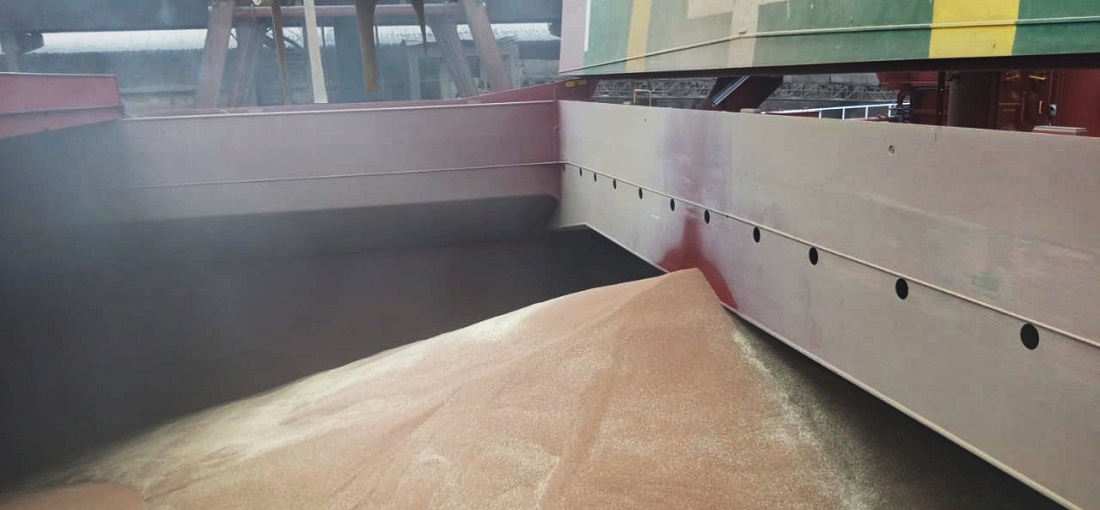
Export restrictions affect 17% of global food trade
Jul, 07, 2022 Posted by Gabriel MalheirosWeek 202227
According to the latest figures, export restrictions have been imposed on nearly a fifth of the global food trade as countries respond to the food security crisis exacerbated by Russia’s invasion of Ukraine.
Export bans, higher tariffs, and other barriers were imposed on 17% of the international food market, on a caloric basis, as of June 28, according to a tracker maintained by the Washington-based International Food Policy Institute.
Export restrictions became especially prominent for commodities produced in large quantities by Russia and Ukraine. Wheat is subject to restrictions by 13 countries, the highest count for a single agricultural product. Corn is the next most restricted item (10 countries).
The world has seen two other food security crises in the last 14 years. The pandemic caused one in 2020, while a sharp increase in demand from emerging countries with dramatic economic growth caused another episode in 2008.
This current crisis, however, has continued with a far-reaching impact. Food prices were on an upward trend due to pandemic-induced supply chain problems. The war in Ukraine has opened up another soaring price front.
Wheat and palm oil each account for about 30% of restricted agricultural products. Palm oil, in particular, is not only used as a food ingredient but also as a cosmetic product. Its prices went up as it is seen as a natural substitute for sunflower oil produced in Ukraine.
The Indonesian government banned palm oil exports in April, which sparked a wave of opposition across the world. The ban was lifted in May, but Indonesia prioritizes domestic demand.
Another factor is Indonesia’s shift towards biofuels, with palm oil as an important energy source.
The problematic supply of chemical fertilizers is adding pressure to the food crisis. In addition to the disruption in Russian supplies, China last fall imposed an export ban on urea, a component of fertilizers, intending to prioritize domestic distribution.
Vietnam is considering raising fertilizer export tariffs in response to domestic shortages stemming from high prices and supply chain disruptions.
Prices for phosphoric acid and potassium chloride — two ingredients found in fertilizers — have tripled from 2021, according to the World Bank.
In past food trade crises, staple edibles such as rice, wheat, and buckwheat were subject to extensive controls. In the future, there could be a chain reaction of countries limiting rice exports as an alternative, according to David Kleimann, a member of Brussels-based think tank Bruegel.
Wheat prices are up 20% since the beginning of the year, while corn prices are up 30%. Rice also faces upward pressure, and many other products have reached historical prices.
The current food situation is in danger of becoming famine and unrest, affecting entire regions, Kleimann said.
Haiti experienced violent riots in 2008 after food prices spiraled up. The violence ushered in a change of government. High food prices also contributed to triggering the Arab Spring in 2011.
Source: Valor Econômico
To read the full original article, please go to: https://valor.globo.com/mundo/noticia/2022/07/07/restrio-exportao-atinge-17-pontos-percentuais-do-comrcio-global-de-alimentos.ghtml
-
Automotive
Mar, 08, 2020
0
Vehicle exports fell 7% year-on-year in February
-
Grains
Feb, 23, 2024
0
Bolivia anticipates USD 500 M boost in export sales with new product releases
-
Economy
Dec, 29, 2020
0
Brazilian trade balance in surplus of US$ 1.856 billion in the fourth week of December
-
Ports and Terminals
Feb, 14, 2025
0
Port of Santos Clears Abandoned Ship



